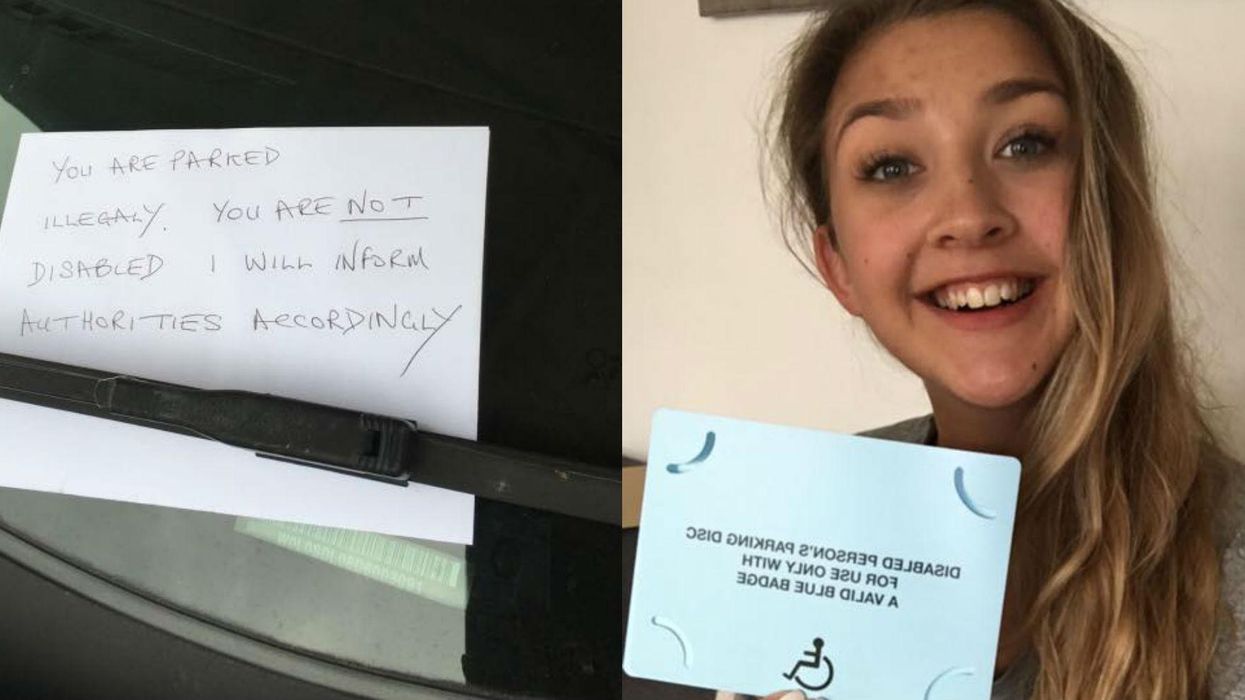News
Jake Hall
Jul 21, 2018

Picture:
Yasmin Swift / Facebook
It’s worth remembering that not all illnesses are visible.
Yasmin Swift, a 19-year-old hairdresser from Ashford, Kent, knows this all too well; around seven months ago, she was diagnosed with idiopathic pulmonary arterial hypertension, a rare lung disorder whose cause is unknown.
Symptoms vary in terms of severity, but they can include heart palpitations, frequent shortness of breath, dizziness and fainting spells. In Swift’s case, the illness became so severe that she was forced to take six months away from school to recover.
Naturally, Swift is entitled to a disabled parking badge – her decreased lung capacity makes it more difficult to walk long distances, making a close parking spot a necessity.
But not all drivers know this about the teenager; because she doesn’t look ‘ill’ or ‘disabled’, she occasionally faces the wrath of disgruntled fellow motorists. Swift experienced this hostile treatment earlier this week at a pub in Tenterden, when a fellow driver penned an angry note and attached it to her windscreen.
“You are parked illegally,” it read.
You are not disabled. I will inform authorities accordingly.
Frustrated, Swift shared the note to Facebook alongside a moving post in which she clarified: “Just because I look well doesn’t mean I am well!”
She rounded off her post by clarifying that her disabled badge was displayed on her dashboard, but that the incensed motorist - who, of course, left neither their name nor their details - judged her purely because she looked 'normal'. Speaking to Kent Live, she describes feeling judged on a regular basis for utilising her rights to a disabled parking bay:
You can tell people are staring when you get out of the car, but nobody had actually said anything before, let alone left a note.
When I put my badge up, I feel like I have to walk out of the car limping. But I shouldn't have to feel like that, because there is an illness - it just doesn't show.
Swift also lamented society's 'arrogant' attitudes towards victims of invisible illnesses, as well as explaining that, had she confronted the author of the note, she would have warned them not to judge.
Just because I'm not in a wheelchair, or I don't have a visible ailment, it doesn't mean I'm not entitled to use a disabled space.
Luckily, a huge outpouring of support online has helped Swift to move past the judgemental note and focus on the positives to come from the situation.
If nothing else, the incident is a crucial reminder that not all illnesses are visible - and that, even if you do happen to judge someone automatically, it's best to just keep it to yourself.
More: This is what it's like to live with an invisible disability
Top 100
The Conversation (0)
x













